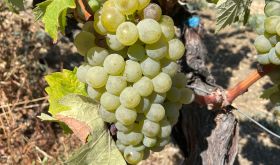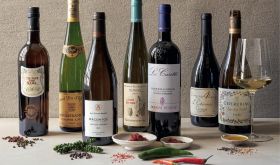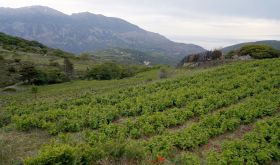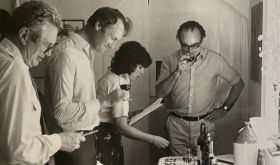I must say that my first reaction back in cyber prehistory three or four years ago was that this nebulous new meeting place in the ether – or is it on some satellite somewhere? – promised to provide the perfect hangout for the people we used to call wine bores. Such individuals would no longer need to go out to dinner, sit next to me and talk ad nauseam about exactly what they had in their cellars and how little they paid for it 20 years previously. They could now get all that off their chests without leaving home – indeed without leaving their desks – by nipping in and out of wine chat rooms on the screen. (It's funny how much bolder and potentially ruder people are when able to express themselves without being seen.)
But then came the great scramble for internet gold that peaked so publicly in April last year. Wine was not immune from mankind's extraordinary collective delusion that online retailing would amass fortunes overnight. Bottle shops would be a thing of the past, we were told. No one would need to do anything as inconvenient as actually scan a shelf or handle a bottle. Wine, like everything else, would increasingly be bought via a keyboard rather than a till.
But now we know, of course, that wine is not one of those (relatively few) purchases that lend themselves particularly well to internet shopping. It has to be delivered, risking breakage and petty thievery all the way. It attracts taxes and duties and a terrifying welter of regulations in many parts of the world best provided with the kit for buying online.
You probably have a host of memories of the extraordinary pipedreams that were trailed across your consciousness pre-April 2000 (and afterwards in many cases). I certainly feel as though I spent much of last year listening to pitches from slightly patronising supposed experts offering me the chance to hitch my little wagon to their supersonic rocket on its way to the stars and eternal wealth through selling wine on the web.
Now we know that this was about as likely as Madonna joining a nunnery, having seen for example the biggest wine retail sites in both the United States (the original wine.com) and Australia (wineplanet.com) fall to earth with a very resounding and extremely expensive bump.
Every wine storage warehouse I knew had insider tales of new wine e-tailers moving a paltry few dozen cases a week, when we all knew they were spending literally millions on starting up and marketing. This whole new way of selling seems to have worked best for established retailers who grafted an online section on to an already thriving bricks-and-mortar business. But even the pukka British wine merchant Berry Bros & Rudd, which has had a reasonably sophisticated internet presence for longer than most, still makes only about seven per cent of its sales online.
Wine and the web now seems to have settled down to a rather cosy, middle-aged, if much less glitzy, relationship. It is indeed the chatters rather than buyers who seem most at home there, and such internet forums as Tom Cannavan's Glasgow-based wine-pages.com, Robin Garr's wineloverspage.com, marksquires.com and wine retailer Robert Callahan's more subversive winetherapy.com (all three of them American) are studded with interchanges between (mainly male) wine enthusiasts. Via these and a host of specialist sites both in English and many other languages consumers get their say at last, not just about individual wines but individual commentators.
But if my own modest site www.jancisrobinson.com is anything to go by, the communication doesn't have to be two-way. Wine lovers also seem to appreciate independent advice and the odd snippet of gossip coming at them in a one-way direction (ie, from me).
The big problem for all of us, however, is how to make any money from these havens for the world's wine lovers, as the Australian-based winepros.com has been finding. I have been treating my own site as a charitable exercise for a year now and am determined, unlike most, to resist the temptation to take wine ads or charge for editorial coverage. I am therefore trying out a subscription-only section with privileged detail, tasting notes, insider stuff and the chance to nibble my ear lobes in order to generate slightly more incentive to keep on feeding this monster than the commission on books and videos sold through Amazon.
Who knows whether it will succeed. This strange new world seems one part guesswork to ten parts fantasy. But there is no shortage of new media trying to dive into the wine pond. Yesterday I was urged to join a WAP service dispensing snippets of wine advice to cellphone users. We've just produced a DVD based (loosely) on our TV series 'Jancis Robinson's Wine Course'. I missed out on the wine CD-ROM era, but my friend Oz Clarke seems to have dominated it.
In the last three sentences are four combinations of letters standing for a different means of communication, three of them barely a decade old. What next? I suppose we should be surprised that wine, a subject one would think would need to be tasted to be meaningful, has translated as well as it has to description in all these forms. Good heavens, I believe some people even still read the printed word about it.













